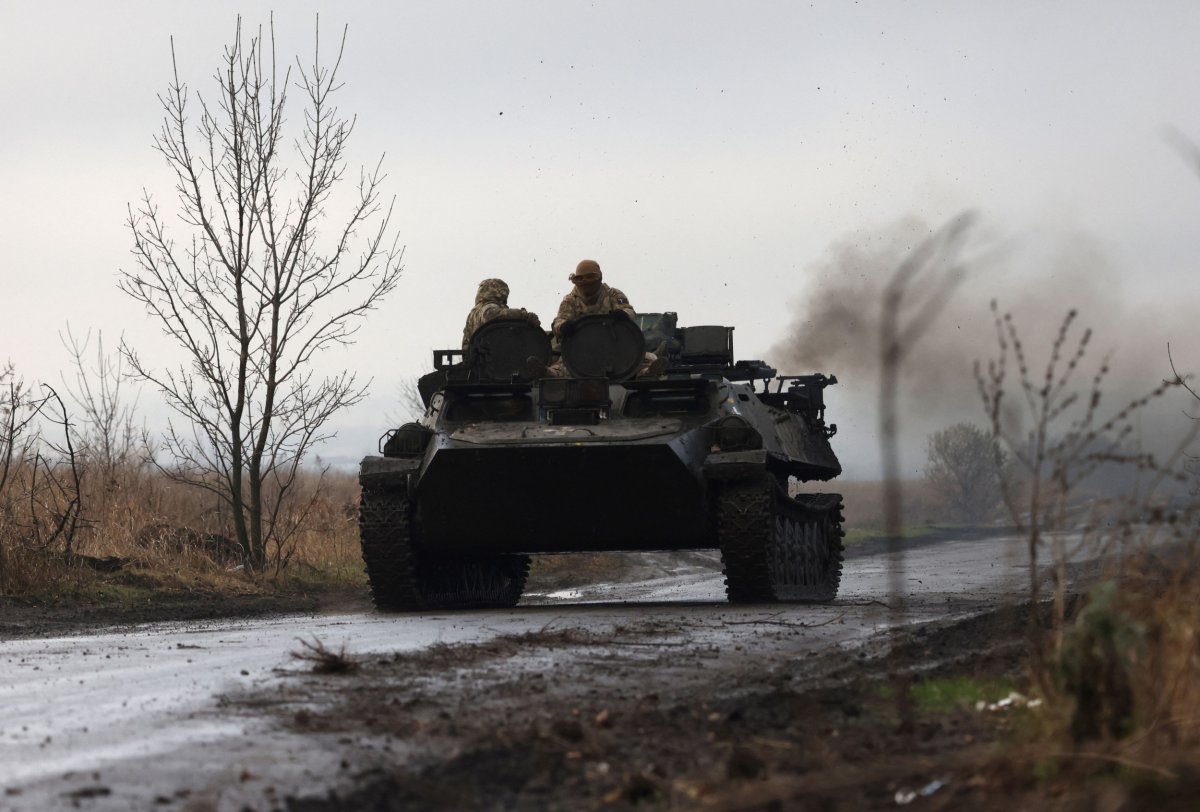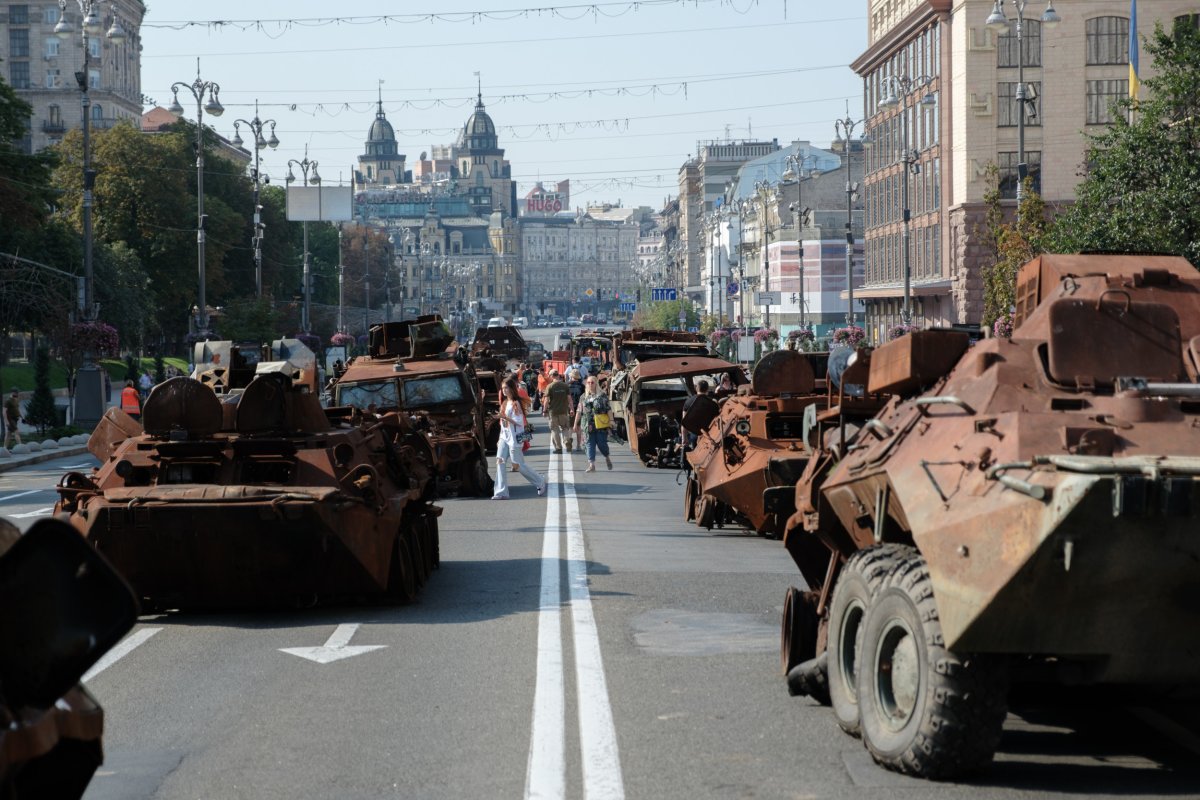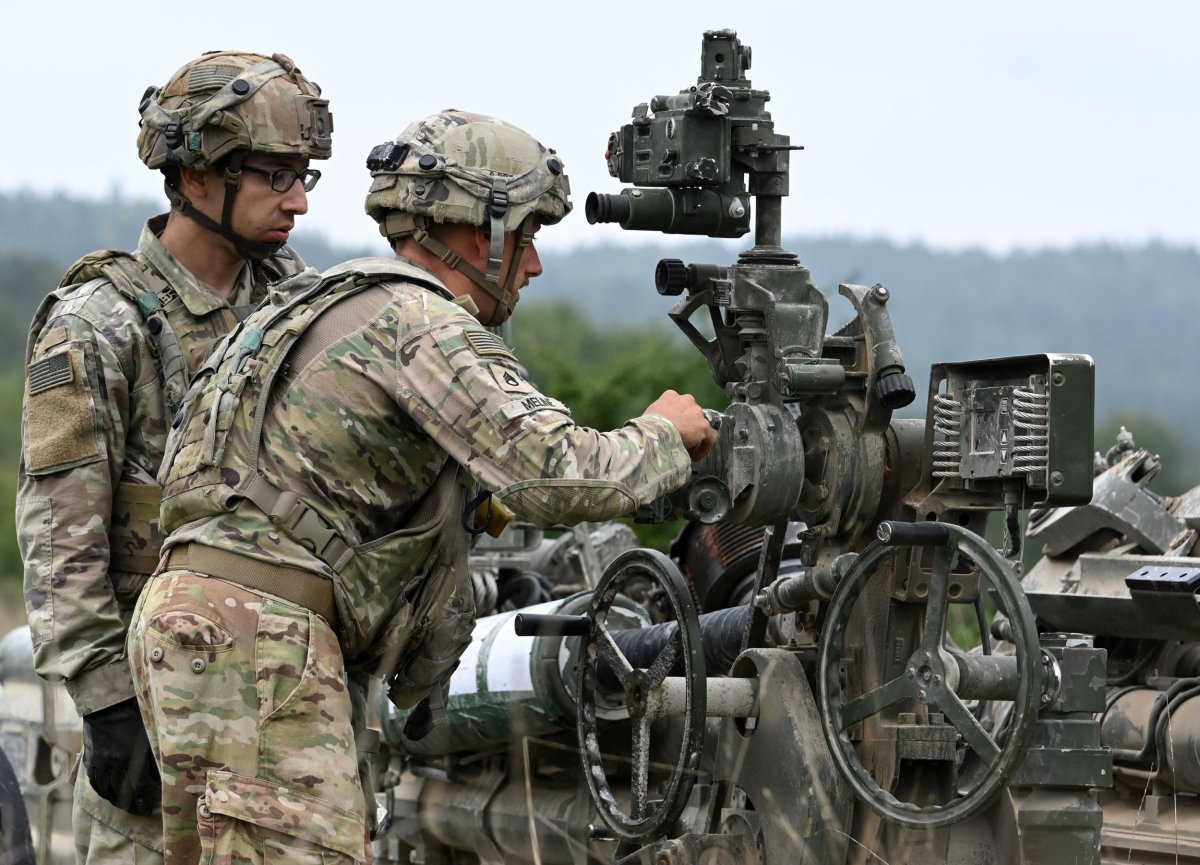David Brennan
NATO must become capable of waging a major war with Russia within five to nine years to deny Moscow a "window of opportunity" to expand its open-ended war on Ukraine into a wider confrontation with the Western alliance, a new report has warned.
NATO risks having to play "catch up" with Russia, despite Moscow's disastrous war in Ukraine, according to the proposal published by the German Council on Foreign Relations (DGAP) think tank earlier this month. Russia, authors Christian Mölling and Torben Schütz said, "represents the greatest and most urgent threat to NATO countries."
The alliance, the report said, is in a "race against time."
"Once intensive fighting will have ended in Ukraine, the regime in Moscow may need as little as six to ten years to reconstitute its armed forces. Within that timeframe, Germany and NATO must enable their armed forces to deter and, if necessary, fight against Russia. Only then will they be in a position to reduce the risk of another war breaking out in Europe."

A Ukrainian armored vehicle is pictured on a road not far from the front line in the Donetsk region on November 16, 2023, amid the Russian invasion of Ukraine. Moscow's war has been costly for both sides.
"If Moscow manages to have its armed forces ready after only six years, NATO will find it increasingly impossible to catch up."
Russian President Vladimir Putin and his top officials have repeatedly framed their invasion of Ukraine as a war against the "collective West," a pre-emptive strike on an American-led bloc bent on the suppression and dismemberment of Russia.
So far, the uneasy peace between NATO and Russia has held. Even as NATO weapons pulverize Russian units in Ukraine, Moscow has engaged in little more than nuclear saber-rattling. Though NATO is expanding to more Russian borders and constricting—with European Union help—Moscow's strategic options, both sides appear committed to a cold, rather than hot, war.
"They don't think it's a war against NATO," Oleg Ignatov, the Crisis Group think tank's senior analyst for Russia, told Newsweek. "They don't want this conflict. And I believe that all their nuclear threats are signals to NATO not to intervene directly."
"It would be a nightmare," Ignatov said of a potential clash between Russia and the Western bloc. "Both NATO and Russia have been doing everything to prevent direct conflict since the beginning of this war."
Russia's War
Russia has so far failed to achieve its goals in Ukraine. What was supposed to be a lightning operation demonstrating Moscow's ruthlessness and strategic superiority has proved a costly morass. The open-ended war has inflicted hundreds of thousands of Russian casualties, isolated the Kremlin economically and politically, and galvanized Moscow's Western enemies after decades of lethargy.
The Russian military has been badly mauled, and the limits of Moscow's lauded decades-long modernization effort clearly displayed to the world. But, the DGAP authors said, the Russian bear has not been declawed.
"Even after nearly two years of combat in Ukraine, the Russian war capability is greater than the current impression suggests," they wrote. "The Russian land forces suffered the greatest losses in terms of personnel and materiel; they will represent the main reconstitution effort. While the air force has also lost qualified personnel, its losses in terms of materiel are relatively minor (about 10 to 15 percent). At the same time, both services have demonstrated their adaptability."
"Russia's navy has suffered heavy losses in its Black Sea Fleet, but the Baltic, Pacific and Northern fleets continue to be ready for use. Both the strategic missile force and the cyber and space forces are likely to have remained largely intact."
Those who have survived the carnage of Ukraine's battlefields will prove valuable for Russia's reconstituting forces. Andrus Merilo, the commander of the 1st Estonian Brigade, told Newsweek earlier this year that future Russian battalion and brigade commanders will be "more experienced than we are. They have learned how to close fight through pain, blood, and suffering. But they have learned."
Putin shows no sign of backing out of his Ukraine gamble, and two decades of his authoritarian rule has left little legitimate political opposition within Russian borders. Sanctions, meanwhile, have failed to collapse the Russian economy.
"Russia is using revenue from its oil and gas exports to transform its arms industry into a war industry," the DGAP report said. "It has boosted output in some segments and kept important workers in production. At the same time, it has managed to circumvent Western sanctions on components considered crucial to the war effort like microchips or ball bearings and raw materials. In addition, Russia imports arms and munitions from allied states such as Iran and North Korea."
"Russia faces fewer major challenges than the West regarding the resilience of its society. The regime violently suppresses every emergence of civil society. Society's willingness to accept the loss of human life is obviously great, as the war in Ukraine has already cost Russia over 250,000 dead and wounded."

People look at destroyed Russian military vehicles during an exhibition on Khreschatyk Street on August 21, 2023 in Kyiv, Ukraine. The war has been highly costly for Moscow.
Ukraine and its Western partners are in for a long war, and—according to the authors of the GDAP report—work preparing for the next one should start now.
"The timeline for implementing these plans can be clearly established: It is defined by the time that the Russian armed forces will need for their reconstitution, meaning six to ten years after the end of high intensity fighting in Ukraine," the authors wrote.
"NATO must complete its own repositioning at least one year before Russia reaches war capability. This would offer the Kremlin the chance to recognize in time that the Russian window of opportunity for a successful attack on NATO has not opened. Given the Russian time of reconstitution, NATO must therefore reach war capability within five to nine years to be able to deter Russia from going to war."
Speed is of the essence, the report argued, suggesting that established deterrence is the key to Russian strategic thinking. "Any troops or systems that NATO countries deploy only a short time before Russia's reconstitution is achieved will not impact Russia's considerations," the authors wrote. "Russia would underestimate NATO's combat readiness and could be tempted to start a war."
NATO Mobilized
NATO has mobilized to meet the newly potent Russian threat since Moscow's troops launched their full-scale invasion of Ukraine in February 2022. NATO-donated tanks, artillery pieces, and even fighter jets are already in action against Russian forces, something that would have been thought impossible in the months and years leading up to the ongoing invasion.
Finland has joined the alliance, adding 833 more miles to the alliance frontier with Russia, while Sweden has also committed to accession. The Baltic Sea—through which many of Russia's most important naval and commercial fleets access the world—some allied leaders have said, now resembles a "NATO Lake."
But the alliance has also been slow in agreeing to send its most advanced weapons to Ukraine and is struggling to expand its military-industrial base to compete with the Russian war machine. Artillery shell production, in particular, has emerged as a potential Western weakness, with allied nations failing to meet the insatiable demand of Ukrainian guns.
More generally, most NATO nations are still failing to meet the target agreed in 2014 to spend 2 percent of GDP on their militaries within 10 years. Among those still struggling to meet the threshold are key nations like Germany, France, and Italy.

American soldiers are pictured during the NATO Saber Junction 23 exercise at the Hohenfels trainings area, southern Germany, on September 14, 2023. The alliance is mobilizing amid Russia's war on Ukraine.
Though support for Ukraine remains publicly popular across NATO, all nation states are struggling with global economic strains and cost of living crises, making large expansions in military spending politically sensitive.
The DGAP report suggested that the antidote is long-term planning. "If the assumption is that NATO still has a decade until it must be able to deter Russia, the required effort becomes easier to digest in political terms," the authors said.
"The burden on public budgets is spread over the terms of several governments. The build-up of force structures and procurement can be continued as planned. Industry can maintain its production plans. NATO countries would also have more time to build up their total defense."
The authors suggested NATO should "gain time" by pushing for Ukrainian victory and maximum Russian military degradation while also integrating Ukraine into EU-NATO defensive structures and industries.
Europe, they added, must take on a more "balanced" share of the Ukraine effort from the U.S. while tightening sanctions to further "impede the development of the Russian war economy."
No comments:
Post a Comment